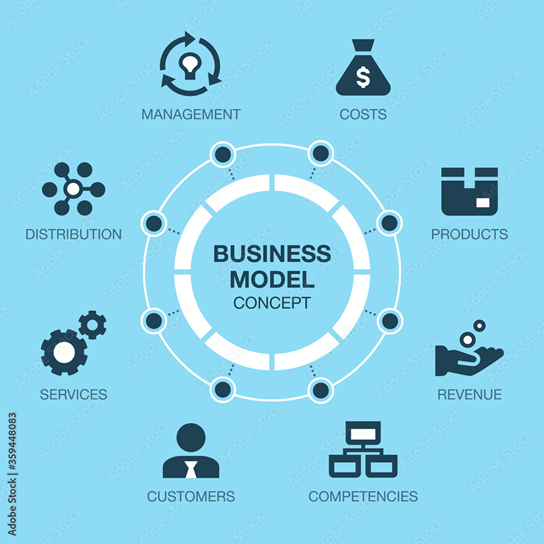Investing in early-stage ventures can be a lucrative opportunity, particularly when entrepreneurs present innovative ideas. Individual investors (angels) often contribute significant funds to these initial ideas, driven by the potential they see in the concept.
However, the optimism surrounding an idea can sometimes overshadow a critical aspect: whether the idea makes sound business sense.
Ideas vs. Business Models
The saying “Never judge a book by its cover” applies to investing. Investors may become captivated by an idea that promises to change the world or make it a better place. However, the long-term success of a venture depends on its business model, not just the initial concept.
A business model outlines how a company creates, delivers, and captures value. It encompasses
- revenue streams,
- cost structures,
- customer segments, and
- key activities
While an idea may be innovative, it must translate into a sustainable and economically viable business to succeed.

Evaluating Economic Viability
While innovative ideas are valuable, they do not guarantee business success. A sustainable business model backed by sound fundamentals is essential for long-term growth and profitability. Investors need to look beyond the initial concept and evaluate the practical aspects of turning the idea into a successful enterprise.
Auxano has observed the same through one of its early investments — a venture in the micro deliveries space catering to enterprises before now dominant market leaders in quick commerce — Blinkit, Instamart and Zepto came into play.
Despite the positive prospects of the business, the venture did not scale owing to limitations posed by the model itself (e.g. cumulative demand for quick commerce in that period).
Comprehensive Investment Criteria
Thus, it is important for investors to approach investment decisions with a comprehensive view.
This involves evaluating a range of factors beyond the initial idea, including-
- market demand,
- competition,
- revenue streams,
- cost structures, and
- scalability
Auxano’s proprietary scorecard (covered in a previous blog here) — a weighted combination of 13 parameters and other sub-parameters. Here companies are assigned scores based on the fulfillment of these parameters.
The ones that cross the threshold, pass the initial round of filtering.
These factors include among others –
- Problem Statement
- Solution
- Market Size
- Business Model
- Stage of the Business
- Revenue Model
- Technology Integration
- Traction
- Team Dynamics
- Competitive Landscape
- Valuation
- Regulatory Impact
- Exit Opportunity
Takeaway
While a compelling idea can spark interest and investment, the long-term success of a venture is often determined by its business model and its economic viability
Investors must look beyond the excitement of the idea for comprehensive evaluation of the business model and other key factors that can help ensure that investments are sustainable and capable of delivering returns in the long run.
Author:
Ashish Padiyar


